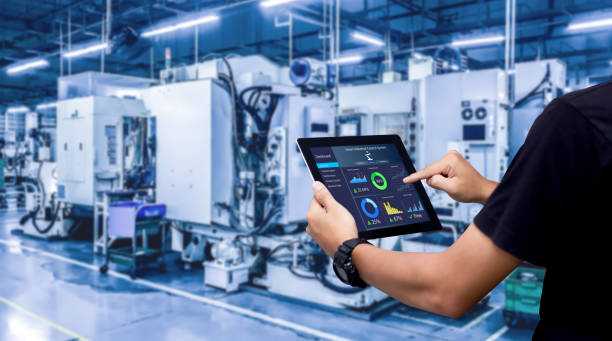Shaping the Future: The Role of Smart Manufacturing in Modern Industrial Landscape
Smart manufacturing is a growing trend in the industrial sector, leveraging the power of advanced technologies to optimize production processes, improve operational efficiency, and enhance product quality. By intelligently synchronizing physical and digital systems, smart manufacturing promises a new era of industrial growth and competitiveness. This article explores the evolution of smart manufacturing, its current trends, and its potential impact on the future of industrial operations.

The Emergence of Smart Manufacturing
In the past, manufacturing processes were largely manual, labor-intensive, and prone to errors. However, with the advent of the digital age, industries began to explore ways to automate and optimize their operations. This led to the introduction of smart manufacturing, a concept that combines advanced technologies, such as the Internet of Things (IoT), big data analytics, and artificial intelligence (AI), to create intelligent, self-regulating manufacturing systems.
Unraveling the Potential of Smart Manufacturing
The potential of smart manufacturing is vast, promising unprecedented levels of efficiency, productivity, and quality. By integrating digital and physical systems, it enables real-time monitoring and control of manufacturing processes, leading to reduced downtime, minimized waste, and improved product quality. It also allows for predictive maintenance, which can significantly extend the lifespan of machinery and equipment.
The Impact of Smart Manufacturing on Business and Industry
Smart manufacturing has the potential to bring about a significant shift in the way businesses operate. It can reduce operational costs, increase productivity, improve product quality, and enhance customer satisfaction. However, it also presents challenges, such as the need for significant investment in technology and training, as well as issues related to data security and privacy.
Pragmatic Insights from Smart Manufacturing
- Smart manufacturing can lead to more efficient use of resources, reducing waste and lowering environmental impact.
- Companies could achieve higher levels of customization in their products, meeting unique customer demands.
- It could facilitate the development of innovative business models, such as servitization, where companies sell services rather than products.
- Smart manufacturing can improve supply chain visibility and collaboration, leading to more efficient and responsive operations.
The Future of Smart Manufacturing
As industries continue to embrace digitalization, the role of smart manufacturing is set to become even more prominent. With the ongoing advancements in technology, we can expect to see more intelligent, connected, and automated manufacturing systems that can self-learn, self-improve, and self-adapt to changing market conditions and customer demands.
In conclusion, smart manufacturing represents a significant opportunity for businesses to improve their operations and gain a competitive edge. However, it also presents challenges that must be addressed. With the right approach and strategies, businesses can successfully navigate these challenges and harness the full potential of smart manufacturing.




